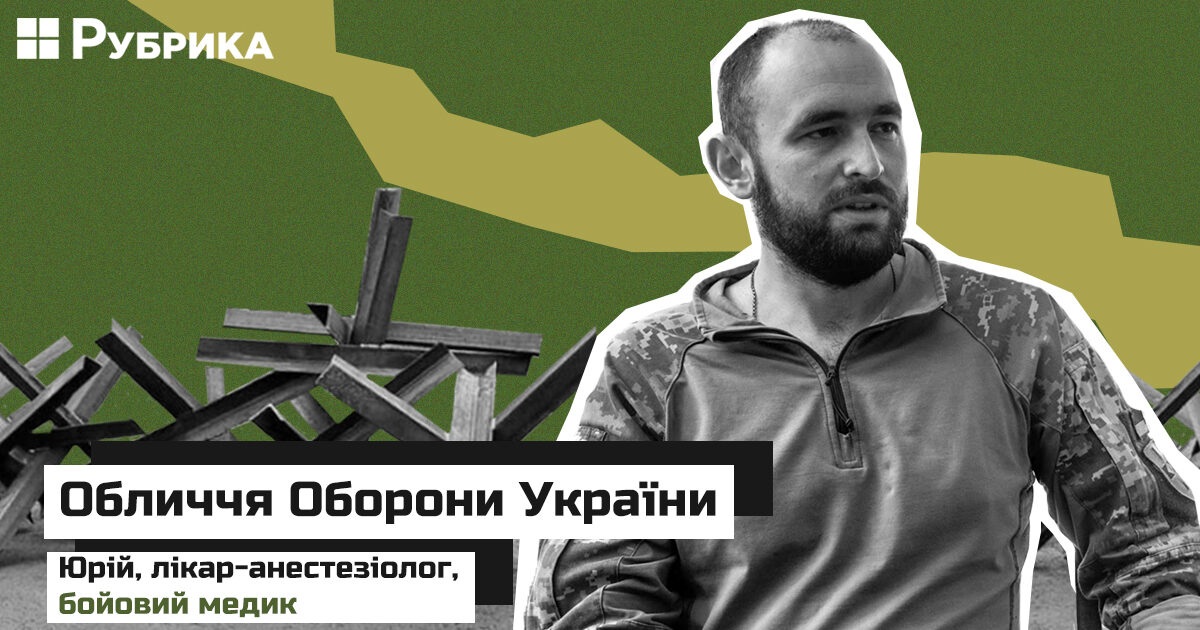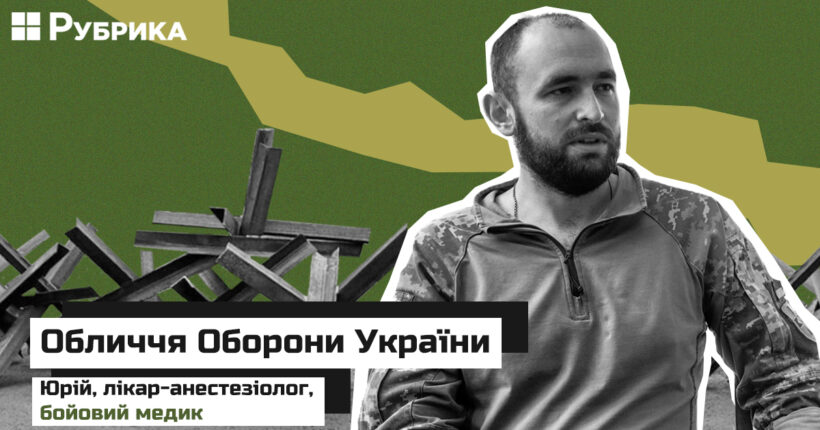
Rubryka talked to one of the combat medics, who was born in the Mykolaiv region and brought back from another city by the war.
This article is part of the Faces of Ukraine's Defense series, which captures the stories of those who defend their home, whatever they can. Those who fight, heal, search, fundraise, clean, buy and do their best for the coming victory.
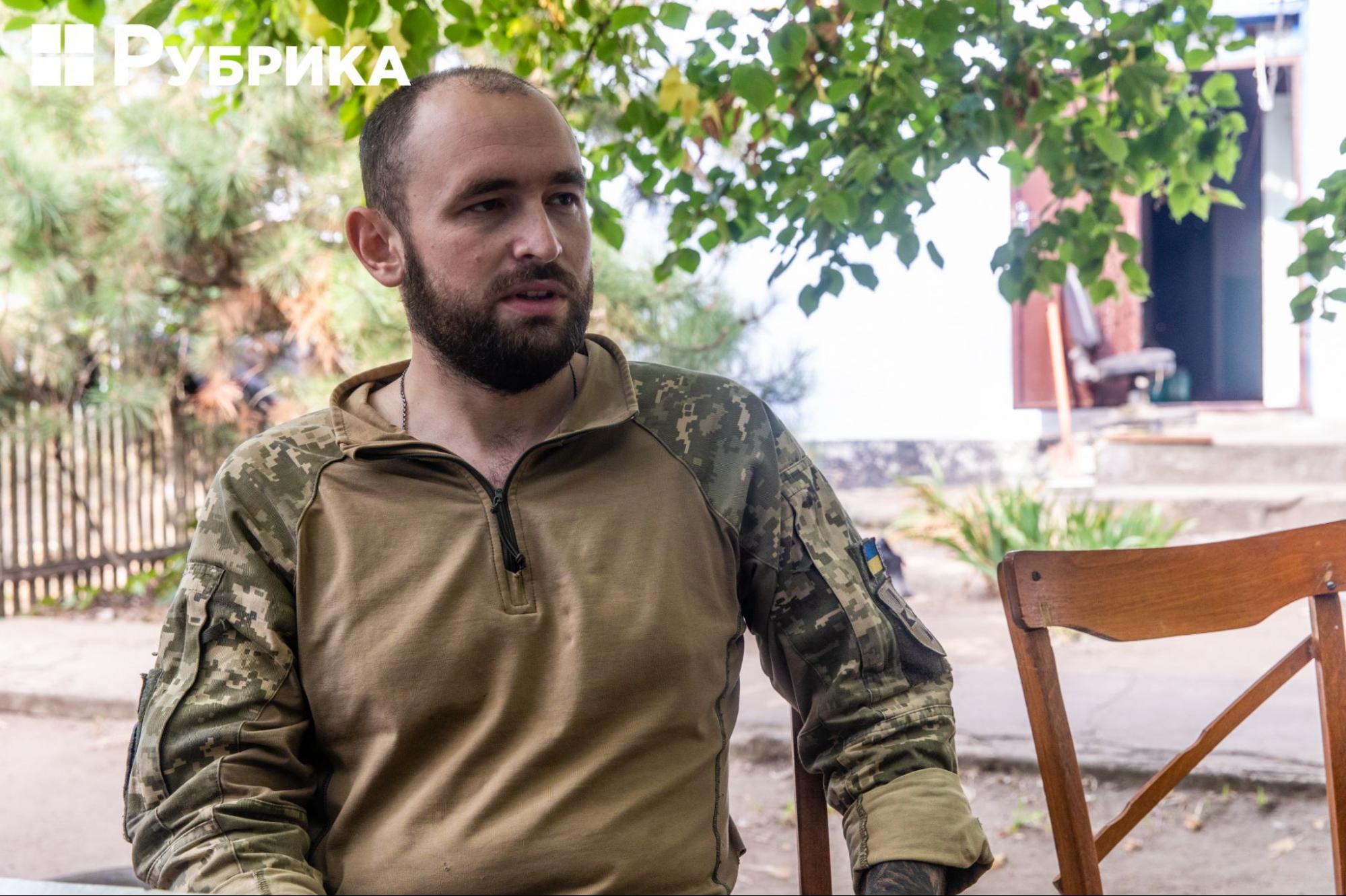
"I don't take lives. I save them"
Yurii Zaitsev is an anesthesiologist. On February 24, he went to work, wrote a statement asking to be granted leave at his expense, and in a few days, he put on a military uniform.
"I was sleeping in the dormitory and woke up to my sister calling me and saying that there were explosions in Odesa. So, I woke up in a new world and went to my old job. I had a day shift in the intensive care unit. But as I remember now — I entered the intensive care unit, stood, looked, and thought: "God, what am I doing here?"
On the same day, I wrote a statement that I was going on vacation at my expense, and while on vacation, I was looking for a way to get a weapon. On the morning of February 24, I already knew what I would do on the evening of the same day. On March 2, through acquaintances, I learned that one unit needed a doctor, and in two hours, I found myself in the army," says Yurii.
He says that his whole life revolves around the south. The man was born in the Mykolaiv region, went through an internship in Kherson, and then moved to Odesa, where he faced a full-scale war. Before that, the man did not serve; because of an injury, he was unfit for military service. But now, he keeps in line with his brothers and sisters.
"I don't take lives. I save them. And I can see very well what a weapon does. I have never held one in my hands before. But when I touched it, I realized it was a great force designed to destroy. However, in one pair of hands, it destroys, and in others, it protects. The machine gun stands by itself, and it will not shoot anyone. It will just sit there, and that's all. The main thing is not the weapon, but the person holding it," says the doctor.
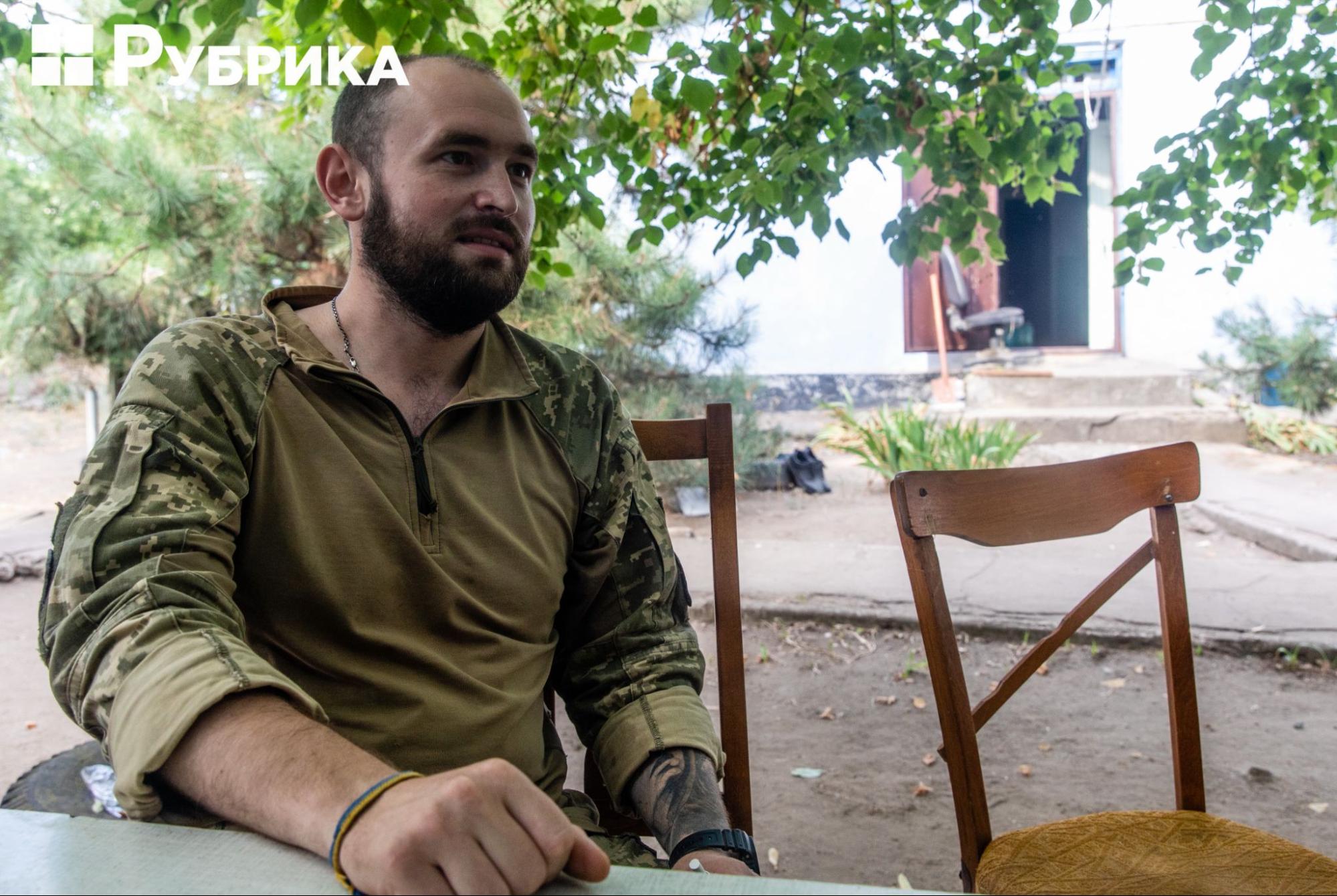
"Higher powers of russia"
Kherson region begins a few villages from where we are talking with Yurii. The doctor did his internship there, so many of his friends and acquaintances are from there. Yurii repeatedly emphasizes that he doesn't understand what those still staying there hope for. Likewise, he doesn't understand those who didn't believe in the "great" war.
"I have friends who recently left. Some acquaintances remain there, and it is a sufficient number of people. There are doctors. One friend is a doctor who stayed in the Kherson region until the end, motivating the decision because people needed her and explaining what kind of patients she had. She was engaged in dialysis and other things. At first, everything was somehow fine, and then the russians came and said, 'we are switching to rubles.' And that friend left at the beginning of July.
Some acquaintances haven't left yet. We communicate. I still ask about their motivation. I don't know what they are counting on.
This was not a surprise. The war started a long time ago. It's just another act, nothing more and nothing less. So it happened. There is no turning back. If it didn't start this year, it would begin next. Or in two years. Or in three. Perhaps the higher powers of the entire russia have decided that we are weak enough to attack now. They like to make mistakes. History shows many examples, so it's the same rake again," the soldier thinks.
As for his relatives, for a long time, they didn't know precisely where Yurii was and what he was doing. The man told everyone, except his sister, that he worked in a hospital without mentioning that he had been on the front line in the Mykolaiv region for a long time. Eventually, they found out about everything at home. But the medic doesn't see a distinct difference between what he did in civilian life and already in military status.
"In civilian life, I did more. Here the spectrum of assistance is narrowed. Medicine is medicine. A crisis can be both in civilian life and here. It's just that an emergency in civilian life is a car crash, and now it's russia as a neighbor.
I changed ministries, but I didn't change the country, right? Therefore, if the medicine is distressing, I don't think it's much better with the armed forces. Although now much more money is poured into the Ukrainian forces than into health care at any time," Yurii laughs and continues:
Now it is necessary. But medicine and education are the state's components that should prosper but don't prosper. I came here because I want to live in my country. I don't want to go abroad in search of a better place. I want to live in a normal country.
There is a large number of people pulling us back. These are the ones that still haven't gotten the Soviet Union out of their system. Ukrainians are adequate people. During the war, I had the opportunity to communicate with many reporters from other countries. They are just like us. How are they different? They're not. They have a more developed economy. First, you need to change yourself. Love yourself, and then you will love your neighbor. If you don't love yourself, you won't love anyone."
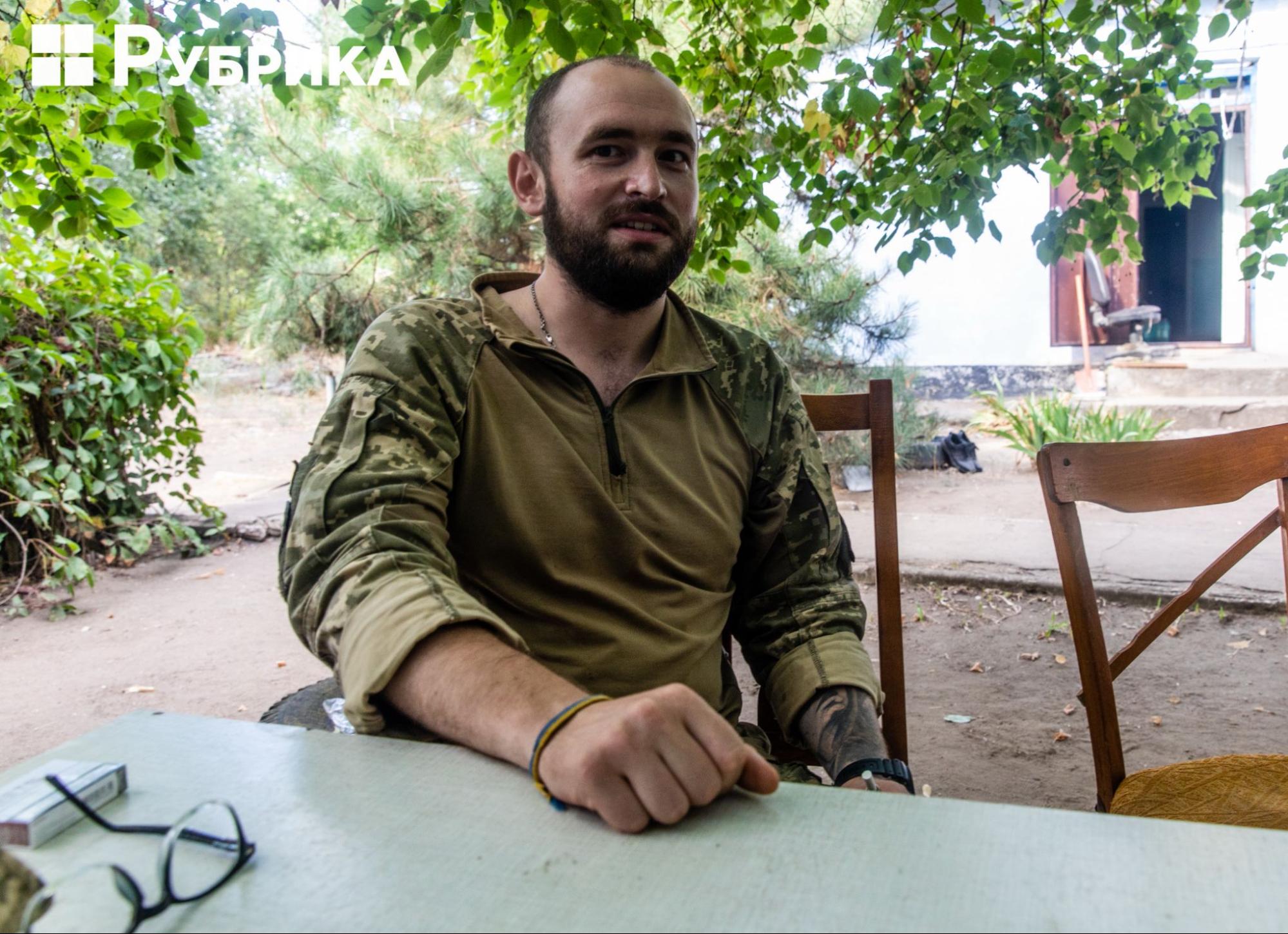
"At what cost we realized that we need to hold on to each other"
When we ask what three things Yurii will do immediately after the victory, he hesitates a little with the answer but is determined:
"I'll go home. I haven't been home for more than a year. Work, internship… that's why I somehow didn't have time to go home, and it turned out that I needed to spend more time with my family. That's what I'll do first. Then I'll get married and have children.
And years later, I will tell the children who our neighbors are, what I did myself, with what thoughts, with what motivation I came here, and what I experienced in terms of help and friendship. Many things are going on right now, and it takes time to analyze them and put them together.
The most important thing to tell children is about our disposition to unite. We are doctors. There are professional drivers, military men, and a combat doctor who, in civilian life, is an artist. By joining, we can do what we need to do. United by one idea, you can move mountains. I'll tell them at what cost we realized we need to hold on to each other."



